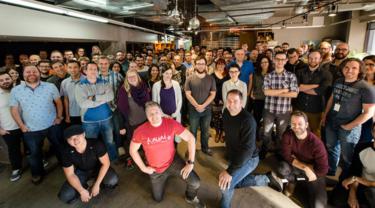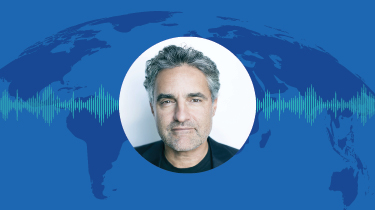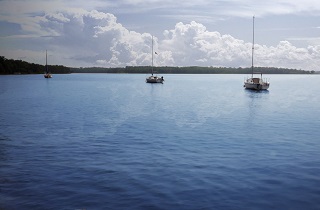For Montréal-based Hibernum, projects involving world-class brands have always been the norm. A videogame developer for mobile platforms and consoles, Hibernum has worked with renowned brands, including franchises such as Disney’s Zootopia, Magic: The Gathering, Fruit Ninja and Bruce Lee.
“Initially, Hibernum was my freelancer pseudonym. Then, in 2006, I realized that the work on my plate was just too much for one person! That’s when I began recruiting talent,” says Frédérick Faubert, president and founder of Hibernum. The company built itself around experienced people drawn from the local talent pool, which gave it great credibility with potential partners and helped it stand out creatively.
In 2009, the popularity of social platforms created a whole new market for Hibernum: turnkey games for these platforms. The company quickly built a team to tackle this market. Its first project with an international brand made the studio known to major players and opened many doors.
Since then, Hibernum has never looked back. The studio has tripled in size, and its 160 employees work for clients all over the world. “The experience we’ve gained in terms of the market and players’ preferences by developing similar games has been crucial. We’ve also been able to implement creative and operational best practices during the game’s development,” explains Faubert.
Most of Hibernum’s partners are based in the U.S., although it also has some in Europe and Asia. The company is particularly interested in the synergy between the Asian and North American markets—a new trend in the industry. “Many brands that are very popular over there want to enter the North American market and rely on us to show them how best to do it,” says Faubert.
“Visibility at major industry events worldwide is important for us. Our team used to travel all over the U.S. East Coast, but that’s no longer enough, since our partners are everywhere. Our games are our best calling card.”
He feels the videogame market is increasingly competitive. These days, Hibernum’s partners prefer to focus on a few games a year. Although these projects now have larger budgets, more is expected of them in terms of financial returns.
The coming years will hold plenty of growth for Hibernum, says its president, who also stresses the contribution of Export Development Canada as a partner. The company wants to maximize its chances of success by betting on a creative team that has its finger on the market’s pulse. “One of our challenges will be recruitment. Soon, we’ll have to import talent to carry out even larger projects,” adds Faubert.
Export insights from Hibernum’s Frédérick Faubert
When and why did you start thinking exporting might be right for your business?
The videogame market grew rapidly in Montréal thanks to the developers that settled here. We got our first projects through our contacts with them. In 2009, we won our first international tender. It was a big challenge, but we had the right team to meet it and stand out creatively. From the beginning, we went looking for experienced people, which means we’re taken seriously when we bid in a sector where we’ve never been before. Being based in Montréal is an advantage given the incredible pool of talent here.
What is the biggest difference between selling in Canada and selling abroad? How did you adapt?
The distance and the different realities that come into play. We’re selling a creative product to a global audience, so there are fewer market discrepancies than for a physical product. However, in some markets, such as Asia, it’s a completely different story. Many brands that are very popular over there want to enter the North American market. Our job is to make sure they’ll be able to blend here.
What has exporting taught you that has had a beneficial effect on your operations and sales in Canada?
We learn new things from every project we carry out. We’ve developed management tools that allow us to enhance our market offer. In addition, working with international partners – who have their own tools and processes – has allowed us to integrate their best practices into our own operations.
In developing our latest game, Saber’s Edge, which is our own intellectual property, we’ve gained invaluable experience in terms of the market and players’ preferences. In so doing, we’ve also been able to implement creative and operational best practices.
What is the best lesson you’ve learned from a bad exporting experience?
We learned to properly assess potential partnerships to ensure that we have a shared vision of the project and that the financial package is sound. We’ve had mixed feelings about certain business relationships in the past. Now, when we’re building a relationship with an international client, we make sure to build synergy and clear out all the challenges that may arise from the outset. Designing agreements with proper legal and economic structures and working in such a way that the physical distance isn’t a problem are also important aspects. Ultimately, we feel that mistakes are learning opportunities.
What do you know about exporting today that you would have liked to know when you started out?
Everything we’ve learned over the years! We would’ve liked to know all of it from the start! Each client and each part of the world brings us new knowledge and new challenges. You can’t be perfect from day one. Rather, every experience — be it a success or a failure — is essential to refining our value proposition. After all, no two clients are the same.
In your opinion, what quality should all exporters have?
Caution and business acumen. Always be on the lookout for business opportunities, but make sure you’re dealing with a good business partner. You need to address any potential concerns before work can begin.





